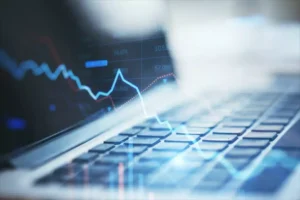Trading and investing are ways to get additional, passive income when your money works for you, bringing even more. However, trading vs investing is not the same thing. These ways to make your money work require various financial and temporary investments and some preparation. The investor and the trader have the same goal — to make a profit. Nevertheless, the ways to achieve it, the amount of profit, the chosen services, and time spent on this work are different.
Before actively immersing yourself in financial activities, you should briefly understand how the two concepts differ in general — trading vs investing. But it turns out that this is not as easy as it seems. The difference between trading and investing looks rather symbolic, and their boundaries are very blurred.
Who is a Trader, and Who is an Investor?
A trader is the leading market participant who ensures the liquidity of assets:
- He can conclude an unlimited number of transactions per day. A professional feature of a trader is that he analyzes a massive array of data during the day, follows the news, is well-versed in finance, and knows the exchange field.
- He predicts changes in the market in advance and buys assets at the lowest possible prices to sell at the highest possible price and capitalize on the price difference.
- The trader is able to act and make decisions in a rapidly changing market environment.
The investor earns over a long period on the «buy and hold» principle. The investor’s goal is to choose the instruments to long-term investment of money correctly and to monitor quotes for an extended period to increase capital to very significant amounts. It is a game of the long haul. There is such a pattern — no matter how often the market falls, it still grows over long periods. Indeed, in the future, the value of securities will always be higher than now. Therefore, the diversification of assets is essential — by country, industry, and individual companies.


Turnkey Brokerage Solution For Your Business
Get the most profitable fully licensed fx/crypto brokerage software or ready-to-operate business in 48 hours. Best-in-class web & mobile trading platforms, sales-driven CRM, full integration with MT4/5, and 150+ payment providers.
How Do Traders and Investors Work?
If you look at it, a trader and an investor are doing the same thing: they open positions in financial markets to make a profit. Nevertheless, they achieve their goals in entirely different ways. Investors physically purchase assets while traders speculate. Investors have been evaluating a company’s growth prospects for many years and even decades. Traders and speculators look at rising and falling markets in the short term.
Primary Goal
The most tangible difference between trading vs investing is the purpose of investing money. Trading is a short-term investment for several seconds, days, and weeks to obtain maximum profit. The trader sells the company for instant profit. In contrast, the investor sells the purchased shares when the company has ceased to develop following the investor’s expectations and the purpose of the investment.
Time
Investing takes time at the initial stage — the stage of studying the company, several hours a week will have to be spent deciding whether the company is suitable for long-term investment. In trading, you will need much more time. You need to be fully involved in the market to understand how the current situation and the news background are changing because price fluctuations depend on this. It means that trading is complicated to combine with other work.

Trader Tools
Traders are interested in liquid and volatile assets whose price changes during the day or other short periods — such assets are easy to sell and buy when the price jumps.
It includes stocks of companies, futures, and options:
- Shares are securities that confirm that their owner has a particular share of the company that issued them. In other words, buying shares makes the investor a company co-owner.
- Futures are when a buyer and seller agree that they will buy a particular asset from one another after some time at a fixed price.
- Options are a type of futures. In this case, the buyer can refuse the transaction, but the seller cannot.
At one time, options and futures were created to insure risks. And their essence has not changed for so many years. Therefore, these instruments are always prevalent and allow you to make transactions in volumes that exceed the size of the deposit.
Investor Tools
Investing has completely different goals than trading. Because of this, investors are not interested in sharp price jumps. The most conservative and classic instruments — stocks and bonds work effectively for long periods.
If traders buy shares intending to sell at the peak of the price, investors are more interested in shares in terms of receiving dividends or a subsequent, more profitable sale of the asset.
Bonds and mutual funds provide the same stable income. Therefore, investors are interested in them, and traders have nothing to trade there.
Sale of Assets
The reasoning logic when selling an asset when investing is different when comparing trading vs investing. The investor sells shares of the company when he is not satisfied with the percentage of growth in the company’s profitability, or it stopped or began to suffer losses. At the same time, the investor always has a list of other potential candidates or products to invest in advance. He can invest money after the sale of the previous company in a new one that has more substantial growth potential.
A trader is not interested in the growth potential of his asset in the long term. He earns on short-term price spikes. A trader sells an asset to take profits. The difference between a trader and an investor cannot be clear-cut. Some traders, as investors, may make trades infrequently or even start investing in other assets, continuing to trade at daily or weekly intervals.
Who Should Choose Trading and Who — Investing?
Trading is an area of uncertainty where change can happen at a crazy pace. It suits active people with high-stress resistance, the ability to analyze company reports, see the actual market situation behind the numbers, and make quick decisions. It’s hard work under stressful conditions.
Investing is more relaxed than trading. But here, too, you need a base in financial literacy, a systematic approach, the habit of saving money, and being patient when reading forecasts. After all, the investor is obliged to understand the estimates on his own, compare various sources, apply fundamental analysis, and only then decide on choosing an object of investment.
We can summarize the following: there is no single universal strategy to satisfy the interests of each of the market participants. A selection of trading vs investing must be strictly individual. When choosing the type of activity on the stock exchange, you must consider the natural temperament. And most importantly, proceed from your own goals and objectives since the strategy and set of tools will depend on this.






